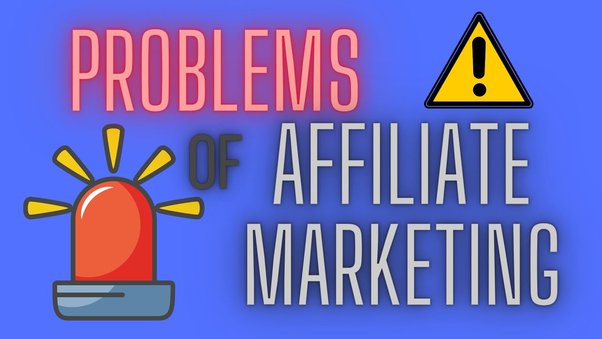
Affiliate marketing is a rapidly growing industry that offers individuals the opportunity to earn income by promoting products or services online. While it can be a lucrative venture for many, it’s not without its challenges and drawbacks. In this article, we will delve into the pros and cons of becoming an affiliate marketer, helping you understand the dynamics of this field and whether it’s the right path for you.
Pros of Becoming an Affiliate Marketer

- Low Startup Costs: One of the most attractive aspects of affiliate marketing is its low barrier to entry. You don’t need to invest in creating your own product or service, which saves you significant capital. Most affiliate programs are free to join, and you only need a website or platform to start promoting products.
- No Product Creation or Inventory Management: Affiliate marketers don’t have to worry about product development, manufacturing, or inventory management. You can focus on marketing and leave the logistics to the product creators or vendors.
- Flexibility and Independence: As an affiliate marketer, you have the freedom to choose the products or services you want to promote. This allows you to align your marketing efforts with your interests and passions, giving you a sense of independence in your work.
- Passive Income Potential: Affiliate marketing can lead to passive income once you have a steady flow of traffic and conversions. After setting up your affiliate links, you can continue to earn commissions from sales even when you’re not actively promoting.
- Diverse Income Sources: You can diversify your income streams by promoting various products and services from different affiliate programs. This minimizes risk and provides stability in case one program experiences a downturn.
- Global Reach: The internet has a global reach, and affiliate marketing allows you to tap into a worldwide audience. You’re not limited to a local market, which can significantly expand your earning potential.
- Performance-Based Compensation: Affiliate marketing is often based on a performance model, where you earn commissions for actual sales or leads generated. This incentivizes you to focus on results and continually optimize your strategies.
- No Customer Support or Returns: Affiliate marketers are not responsible for customer support, product defects, or returns. These aspects are handled by the product vendors, allowing you to concentrate on promoting the products.
- Learn Valuable Marketing Skills: Affiliate marketing can be a great learning experience. You’ll gain expertise in various online marketing techniques, such as content marketing, SEO, email marketing, and social media promotion.
Cons of Becoming an Affiliate Marketer

- Intense Competition: The affiliate marketing landscape is highly competitive. There are countless affiliates vying for the same audience and promoting similar products, making it challenging to stand out.
- Income Volatility: Affiliate income can be unpredictable. Your earnings may fluctuate significantly from month to month, depending on factors like seasonality, product quality, and market trends.
- Dependence on Affiliate Programs: Your success as an affiliate marketer is tied to the programs you promote. If a program changes its terms or shuts down, it can disrupt your income flow.
- No Control Over Product Quality: While you can choose the products you promote, you have no control over their quality or the customer experience. If the product disappoints customers, it can damage your reputation.
- Initial Setup Time: Building a successful affiliate marketing venture takes time and effort. You’ll need to create content, drive traffic, and optimize your strategies before you start seeing significant returns.
- Content Creation Demands: To succeed, you’ll need to create high-quality content consistently. This can be time-consuming and require strong writing, design, or video production skills.
- SEO Challenges: Search engine optimization (SEO) is crucial for affiliate marketing, but it’s a constantly changing field. Staying up to date with SEO trends and best practices can be a challenge.
- Ethical Concerns: Some affiliates resort to unethical practices, such as false advertising or promoting low-quality products. Engaging in such practices can harm your reputation and lead to legal issues.
- Commission Structure Variability: Commission rates can vary widely among affiliate programs. Some may offer high commissions but have strict terms, while others may have lower commissions with more favorable terms.
- No Long-Term Asset: Unlike creating your own product or service, affiliate marketing doesn’t create a long-term asset. You’re essentially building assets for the product vendors, not for yourself.
Conclusion
Becoming an affiliate marketer offers a range of opportunities and challenges. The low startup costs, flexibility, and potential for passive income are enticing, but intense competition, income volatility, and a lack of control over product quality can be significant hurdles. Success in affiliate marketing requires dedication, continuous learning, and ethical promotion practices. It’s essential to weigh the pros and cons carefully and consider whether this field aligns with your skills, interests, and long-term goals. With the right approach, affiliate marketing can be a rewarding endeavor, but it’s not a guaranteed path to financial success.
Find out more about Affiliate Marketing on Amazon.
.

